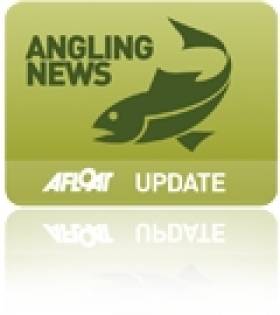Displaying items by tag: Kevin Lockee
World Pairs Championship for Anglers This September
#ANGLING - A prize pool of more than £60,000 (€71,500) will be up for grabs at the Lakeland and Inland Waterways Ireland World Pairs Championship, coming to the border counties this September.
Described by the organisers as "a pairs match the type of which has never been seen before", the competition will run from 9-15 September at various locations in Monaghan, Leitrim, Cavan and Fermanagh.
The format of the match is based purely on total weight of the pair of anglers over the four competition days. On the off days there will be further open matches so anglers can make the most of the great fishing available in Ireland during September.
The exact sections and format of the match are yet to be disclosed, as much depends on the numbers of anglers attending - although the prize pool is guaranteed.
Entry per pair is £90 (£45 per angler) with discounts for booking through one of the official travel companies.
"You dont need to be 'venue experts' to win this match," say the organisers, "you just need to be able to catch roach and bream, and there are some massive shoals of them to be found in the lakes and rivers that the event will be staged on."
The organisers add: "Absolutely anyone can enter and you are all in with a chance of winning - while fishing in the beautiful surroundings of the Irish countryside."
For more information, entry forms and travel arrangements, visit the Talk Angling forum or contact Kevin Lockee at 07736 129 627.
























































